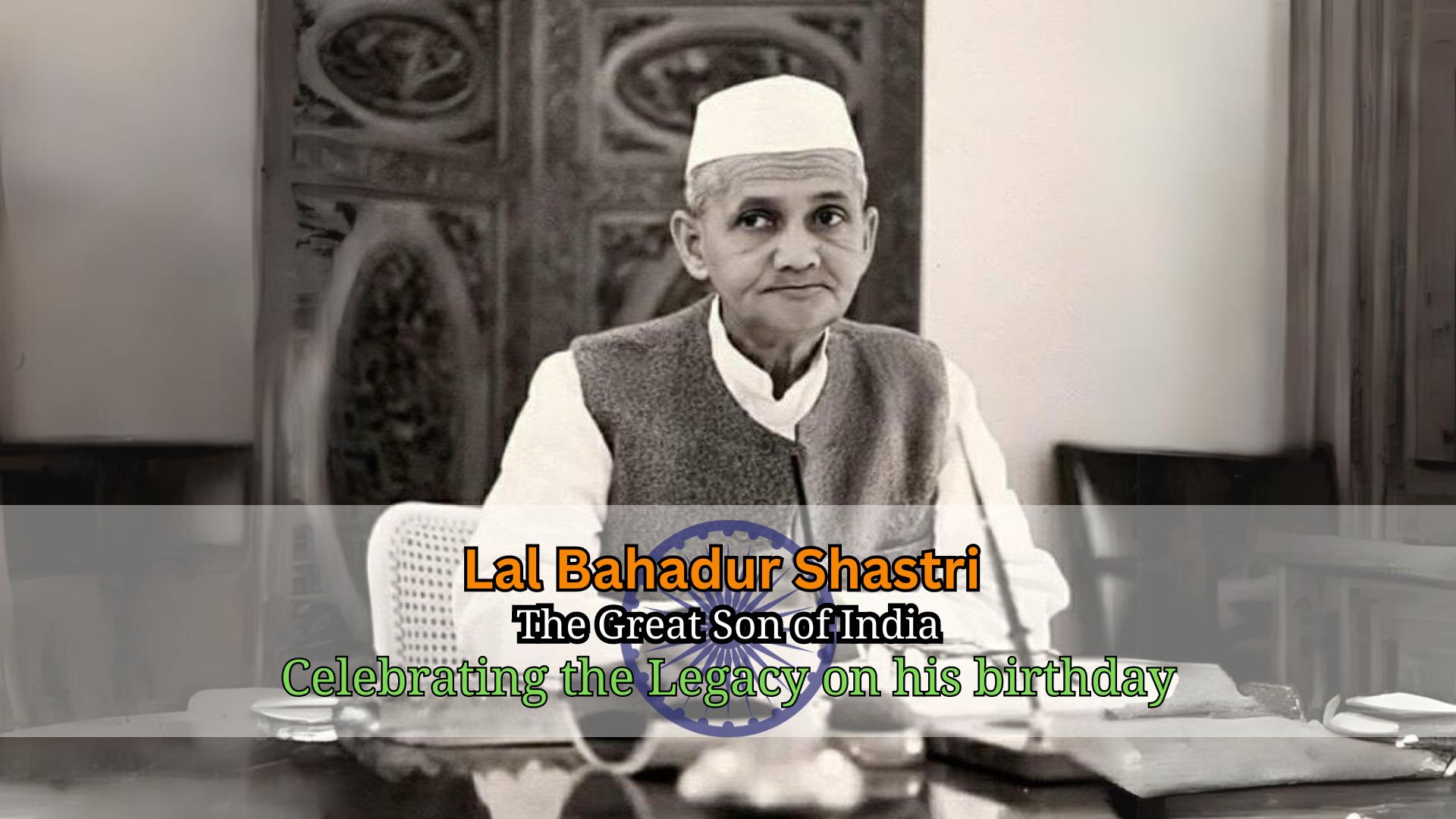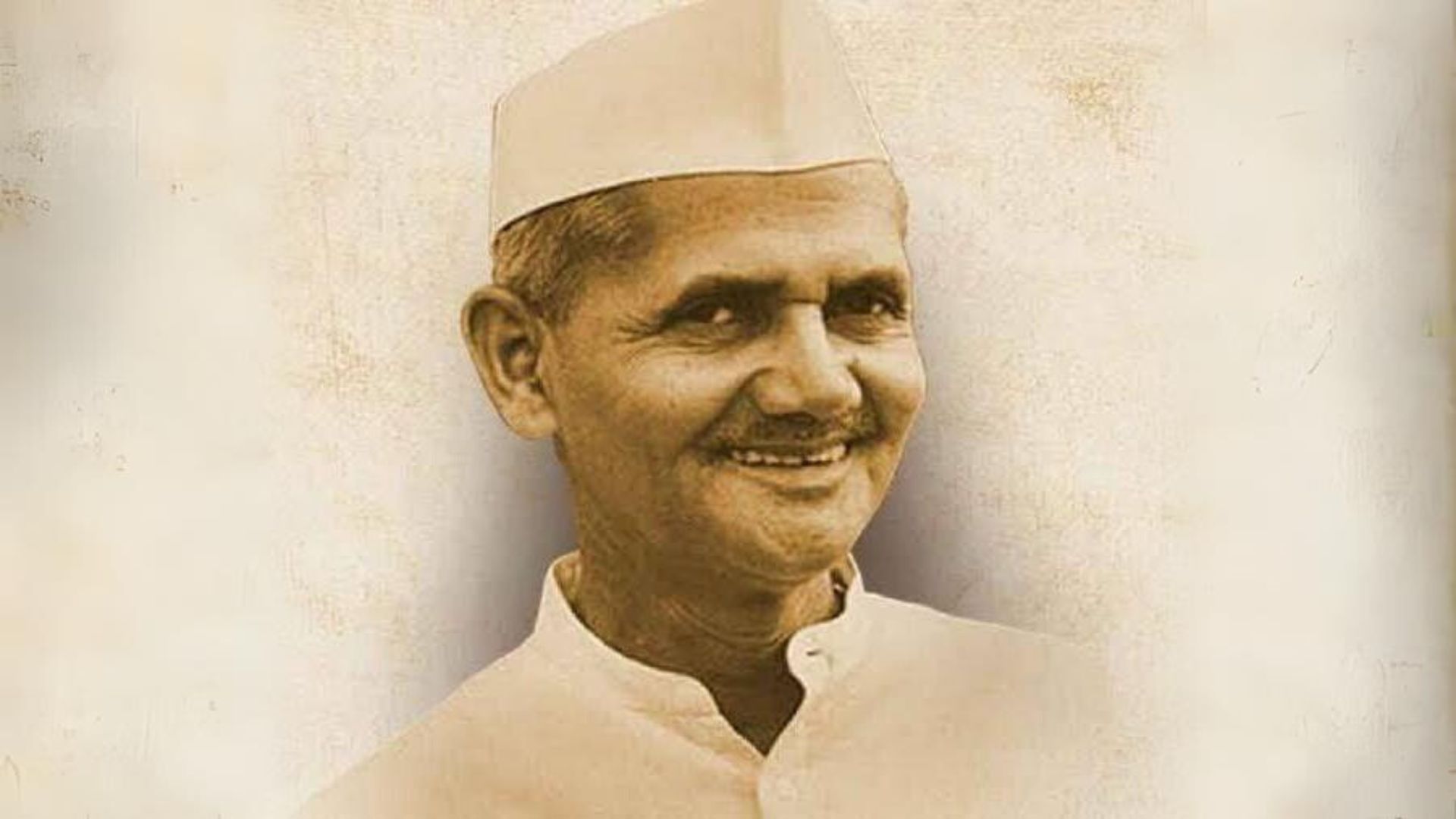
Introduction
Lal Bahadur Shastri, a name often overshadowed by the towering presence of other Indian leaders, played a pivotal role in India's struggle for independence and later emerged as a symbol of simplicity, integrity, and leadership. Born on October 2, 1904, in Mughalsarai, Uttar Pradesh, his early life was marked by modesty, struggles, and an unwavering commitment to the cause of a free and just India.
Early Life and Education
Shastri's early life was characterized by financial hardship. His parents, Sharada Prasad and Ramdulari Devi, were humble farmers, and the family's resources were limited. Despite these challenges, young Shastri displayed a keen intellect and a thirst for knowledge. He graduated with a first-class degree from the Kashi Vidyapeeth in Varanasi, an institution that would later confer upon him the honorary title of "Shastri" signifying his scholarly acumen.
Struggles and Early Activism
Shastri's entry into the world of politics was influenced by his deep-seated belief in Mahatma Gandhi's principles of non-violence and civil disobedience. He actively participated in the non-cooperation movement of 1921, refusing to accept his degree from the British-controlled institution. This marked the beginning of his involvement in India's struggle for independence.
His life was marked by several imprisonments due to his participation in various protests and movements against British rule. Shastri's experiences in jail hardened his resolve and strengthened his commitment to the cause. He spent a total of nine years in jail, enduring the hardships and sacrifices that came with it.

Leadership in the Freedom Movement
Lal Bahadur Shastri's contributions to the freedom movement extended beyond his time in confinement. He played a vital role in organizing and mobilizing people for various protests and civil disobedience movements. His humility and ability to connect with people from all walks of life made him a respected figure in the Indian National Congress.
Shastri's leadership abilities were recognized, and he rose through the ranks of the Congress party. He worked alongside leaders like Jawaharlal Nehru, Sardar Patel, and others in shaping the course of India's struggle for independence.
The Role of Shastri in Post-Independence India
After India gained independence in 1947, Lal Bahadur Shastri continued his dedicated service to the nation. He held several important positions in the government, including Minister of Railways and Minister of External Affairs. His tenure as the Minister of Railways saw significant improvements in the Indian rail network, earning him the reputation of a capable administrator.
However, it was as India's Prime Minister that Shastri's leadership truly shone. He assumed office in 1964, following the death of Jawaharlal Nehru. His leadership during a critical period, including the Indo-Pak war of 1965, earned him immense respect. The famous slogan "Jai Jawan, Jai Kisan" (Hail the Soldier, Hail the Farmer) encapsulates his vision for a self-reliant and secure India.
Conclusion
Lal Bahadur Shastri's life journey from humble beginnings to becoming the Prime Minister of India is a testament to his unwavering commitment to the ideals of freedom, justice, and integrity. His contributions to India's struggle for independence, his selfless service as a leader, and his role in shaping the destiny of post-independence India make him a revered figure in Indian history.
On his birth anniversary, we remember and honor the quiet hero who exemplified the qualities of simplicity, honesty, and dedication to the service of the nation. Lal Bahadur Shastri's legacy continues to inspire generations of Indians to strive for a better, more just society.
NEXT ARTICLE

"A staggering one in five children in India is pre-diabetic," revealed Mrs. Swathy Rohit, the visionary founder of Coimbatore-based digital health p...

Where a rhythmic cadence of music blends seamlessly with the structured world of auditing, we found Mukund Swaminathan, a 26-year-old maestro who has...

"Life doesn't offer retirement, only professions do. While I've stepped away from my practice, I haven't retired from living. No one truly retires whi...